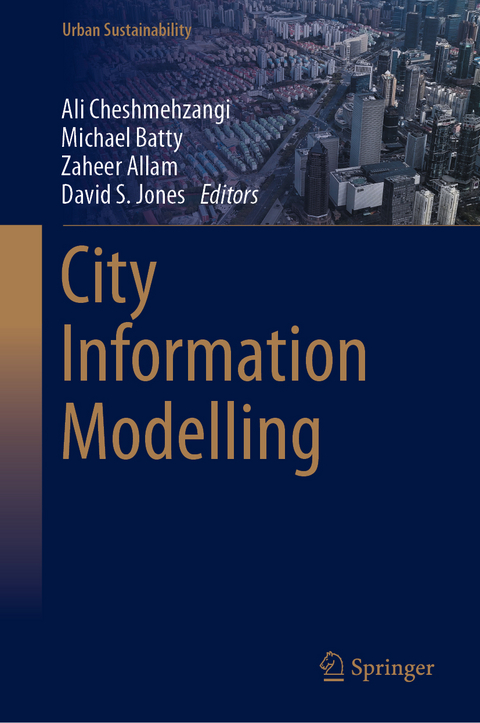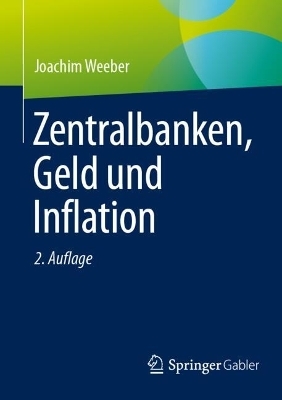
City Information Modelling
Springer Verlag, Singapore
978-981-99-9013-9 (ISBN)
City Information Modelling provides global case study examples in three parts. At first, the contributors offer several examples of ‘Concepts and Trends’, where CIM is explored further in urban management, urban sustainability, and big data studies. In the second part, the book offers various examples of application and digitization processes or methods related to urban planning and design practices. In the third part, the contributors delve into several examples of CIM frameworks and practices critical to contemporary research, planning and design paradigms, and future practices.
This collection is a niche resource for various stakeholders, particularly urban scientists, urban analytics, urban practitioners, and researchers. It will also be a valuable collection for those who work with information-based models, urban optimization models, and big data analytics, particularly from policy and practice perspectives. The findings of this collection help direct future research in CIM and suggest opportunities for big-data urban research, integrated urban models, and holistic frameworks in sustainable cities, smart cities, and future cities.
Ali Cheshmehzangi is the World’s top 2% field leader, recognised by Stanford University. He is Professor of Architecture and Urban Planning and Head/Director of the Center for Innovation in Education and Research (CIER) at Qingdao City University. Over 11 years at his previous institute, Ali was Full Professor in Architecture and Urban Design, Head of the Department of Architecture and Built Environment, Founding Director of the Urban Innovation Lab, Director of Center for Sustainable Energy Technologies, Interim Head of Research Group for Sustainable Built Environment, and Director of Digital Design Lab. He was Visiting Professor and now Research Associate of the Network for Education and Research on Peace and Sustainability (NERPS), Hiroshima University, Japan. So far, Ali has published over 400 journal papers, articles, conference papers, book chapters, and reports. He has 20 other academic books focused on cities and sustainable development research areas. He has receivedseveral awards for three of his books, Eco Development in China (2018), The City in Need (2020), and China’s City Cluster Development (2022). Ali is globally known for his research on ‘urban sustainability’. Michael Batty is Bartlett Professor of Planning at University College London. He is Chair of the Centre for Advanced Spatial Analysis (CASA) and a Turing Fellow in the Alan Turing Institute. He was Professor of Town Planning at the University of Wales in Cardiff in the 1980s, Director of the NCGIA at SUNY-Buffalo in the early 1990s before he set up CASA at UCL in 1995. He has worked on computer models of cities and their visualisation since the 1970s and his recent publications Cities and Complexity (2005), The New Science of Cities (2013), Inventing Future Cities (2018), all published by The MIT Press, and the edited book Urban Informatics (Springer 2021) reflect this focus on the applications of digital technologies to urban planning. Heis a Fellow of the British Academy (FBA), the Royal Society (FRS) and the Academy of Social Science (FAcSS) and was awarded the CBE in the Queen’s Birthday Honours List in 2004. Zaheer Allam holds a PhD in Humanities, a Master of Arts (Res), an MBA, and a Bachelor of Applied Science in Architectural Science from universities in Australia and the United Kingdom. Based in Mauritius, he is the Chairperson of the National Youth Environment Council (NYEC) and a board member of the Mauritius Renewable Energy Agency (MARENA) and works on a number of projects on the thematic of Smart Cities and on strategies dwelling in the increasing role of technology in Culture and the Society. Zaheer is also the African Representative of the International Society of Biourbanism (ISB), member of the Advisory Circle of the International Federation of Landscape Architects (IFLA), and a member of a number of other international bodies. Honorary Fellow at Deakin University (Australia), he holdsa number of awards and commendations, including an elevation, by the President of Mauritius, to the rank of Officer of the Order of the Star and Key of the Indian Ocean, the highest distinct order of merit in Mauritius. He is the author of over 145 peer reviewed publications and author of 9 books on the subject of Smart, Sustainable and Future Cities. David S. Jones is a Professor (Research) at the Indigenous Studies Research Centre at Monash University, an Adjunct Professor at the Faculty of Art & Design at the University of Canberra, an Adjunct Associate Professor at the Cities Research Institute at Griffith University, and was Foundation Professor of Planning and Landscape Architecture at Deakin University, before more recently oversighting strategic planning and urban design for the Wadawurrung Traditional Owners Aboriginal Corporation. With academic and professional qualifications, he has taught, researched, and published extensively across urban planning, landscape architecture, cultural heritage and Indigenous Knowledge Systems in the past 35 years. He has co-authored the Victoria Square/Tarntanyangga Regeneration Project (2017); authored the Adelaide Park Lands and Squares Cultural Landscape Assessment Study (2007); co-authored Learning Country in Landscape Architecture Indigenous Knowledge Systems, Respect and Appreciation (2021); co-authored North Gardens Indigenous Sculpture Landscape Master Plan (2019), Geelong’s Changing Landscape (2019), Re-casting Terra Nullius Blindness (2017); and co-authored chapters to the Routledge Handbook to Landscape and Food (2018), The Handbook of Contemporary Indigenous Architecture (2018), Routledge Handbook on Historic Urban Landscapes of the Asia-Pacific (2020), and Routledge Handbook of Cultural Landscapes in the Asia-Pacific (2022).
City Information Modelling: An Insight into a New Era for the Built Environment.- Concepts and Trends.- City Information Modelling and Sustainable Development: The Role of CIM in Achieving Sustainable Urbanization.- Enhancing Health Outcomes through City Information Modeling (CIM): A Case Study of Sydney, Australia.- City Information Modeling and its Applications: A Review.- Applications and Digitisation.- Optimizing Urban Design for Pandemics Using Reinforcement Learning and Multi-Objective Optimization.- Sustainable Smart City Application Based on Machine Learning: A Case Study Example from the Province of Tekirdağ, Turkey.- The Role of City Information Modelling (CIM) in Evaluating the Spatial Correlation Between Vegetation Index Changes and Heat Island Severity in the Last Two Decades in Tehran Metropolis.- Exploiting Advantages of VPL in City Information Modelling for Rapid Digital Urban Surveying and Structural Analysis.- Frameworks and Practices.- Towards Adaptive and Resilient Strategies using Digital Twins: A Study on the Port of Tyne, UK.- Ecosystem Institutional Maturity: Perspectives for CIM in Urban Management and Planning in Curitiba, Brazil.- The Use of City Information Modelling (CIM) for Realizing Zero Energy Community: A Path Towards Carbon Neutrality.- Conclusions and the Future of City Information Modelling (CIM).
| Erscheinungsdatum | 24.02.2024 |
|---|---|
| Reihe/Serie | Urban Sustainability |
| Zusatzinfo | 66 Illustrations, color; 14 Illustrations, black and white; XVII, 253 p. 80 illus., 66 illus. in color. |
| Verlagsort | Singapore |
| Sprache | englisch |
| Maße | 155 x 235 mm |
| Themenwelt | Mathematik / Informatik ► Informatik |
| Sozialwissenschaften ► Politik / Verwaltung ► Staat / Verwaltung | |
| Technik ► Architektur | |
| Technik ► Bauwesen | |
| Technik ► Maschinenbau | |
| Schlagworte | Big Data • Building Information Modelling / BIM • City Information Modelling / CIM • Optimization • smart cities • sustainable cities • sustainable development • urban data • urban management • Urban sustainability |
| ISBN-10 | 981-99-9013-0 / 9819990130 |
| ISBN-13 | 978-981-99-9013-9 / 9789819990139 |
| Zustand | Neuware |
| Haben Sie eine Frage zum Produkt? |
aus dem Bereich


